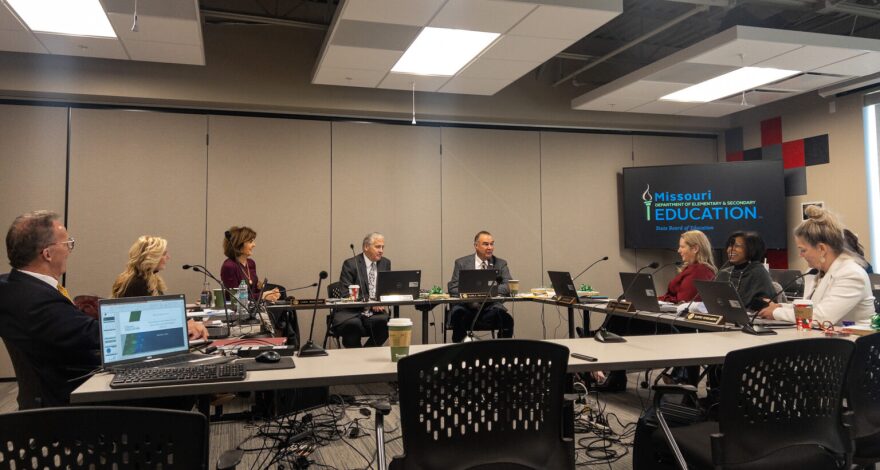The Missouri State Board of Education has an empty seat, chronically vacant since lawmakers created a position for a teacher to advise the board seven years ago.
Like the other board members, the spot is appointed by the governor. But former Gov. Mike Parson, who took office shortly before the seat was created, never chose someone for the position. And thus far, Gov. Mike Kehoe hasn’t either.
“We would like to see an active classroom teacher be on the state board to provide that perspective of someone who’s in the classroom now and say what the immediate needs of educators and students are in the classroom,” Mark Jones, communications director for the Missouri branch of the National Education Association, told The Independent.
The State Board of Education, at its board retreat in July, discussed the vacancy during a discussion of the board’s legal responsibilities.
“This position still hasn’t been appointed, and I don’t know if there are any plans to do that at this point,” Sarah Madden, general counsel for the Missouri Department of Elementary and Secondary Education, told the board.
Pamela Westbrooks-Hodge, a board member from Pasadena Hills, questioned why the seat was empty.
“I would hope there’s a sense of urgency,” she said.
Madden responded that she didn’t have an answer for why the position has never been filled.
Despite the position being largely unpaid apart from expense reimbursement and lacking voting authority, teachers have been willing to step up.
“Those teachers that are there every day in the classroom, they have that firsthand knowledge, so they’re able to share that with the board,” said Matthew Michelson, director of education policy at Missouri State Teachers Association. “A lot of them would want to do that, and they would want to be able to explain how decisions impact classroom teachers or how it impacts the profession.”
Jones said he knows two former Missouri Teacher of the Year awardees who have inquired about becoming the teacher member but never got tapped to join the board.
State law requires that they must be an “active classroom teacher” with at least five years of experience. The requirement to be an active teacher is important, Michelson told The Independent, because the state of education moves quickly.
“Even if you took a teacher from 2019 pre-COVID and you put them on the state board, I don’t know that they would have the same perspective as someone who was in the classroom last year,” he said. “Things have just evolved so quickly, so having someone that is currently in the classroom and that is dealing with the issues of today is really important.”
The other board members are barred from having direct ties to the classroom, with statute restricting them from being “connected, either as an official or as an employee, with any public, private, or denominational school, college or university.”
The idea for a teacher representative came over a decade ago, Michelson said, with a member of the teacher’s association pitching it. Then-state Rep. Becky Ruth, a Republican from Festus and a past president of the teachers association, took the idea to the state legislature in 2015.
Her original bill asked for voters to weigh in on requiring three members of the eight-member board to be educators. By 2018, the legislation evolved to propose adding a teacher as a non-voting member, and it passed as part of an omnibus education bill.
“Ultimately it ended up being more of an advisory position because, frankly, that is what the legislature was more inclined to get something passed with,” Michelson said.
At the time, he never would have imagined that the seat would sit empty for years.
Board vacancies are not rare in Missouri. According to a state website dedicated to boards and commissions, there are over 1,000 positions left vacant or filled with a member serving on an expired term.
Some boards and commissions, like the Citizen’s Land Development Cooperative Commission, are completely vacant. But the State Board of Education rarely has its voting-member positions unfilled.
“It just depends on what the priorities of the governor are and what other boards and commissions he needs to fill,” Jones said. “But I think seven years is a long time to go without a direct teacher voice to the board.”
The governor’s office did not respond to a request for comment.
This story was originally published by the Missouri Independent.






